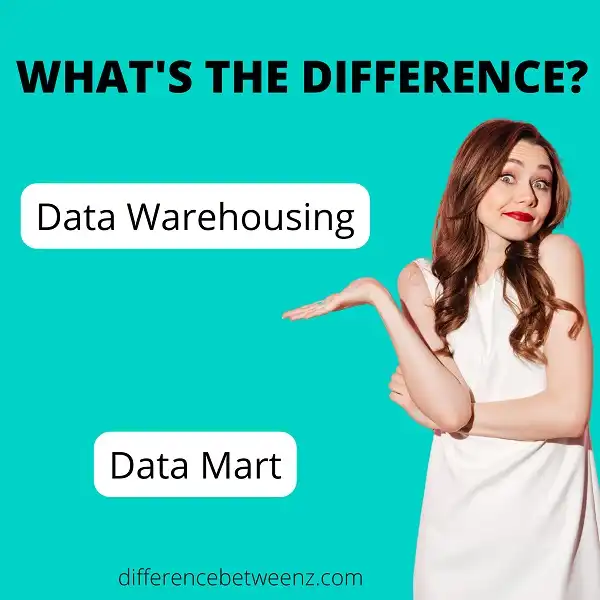Data warehousing and data marts are two different concepts that are often confused with each other. While they have similarities, there are some key distinctions between the two that you should understand before deciding which one is right for your organization. In this blog post, we will break down the differences between data warehousing and data marts, so that you can make an informed decision about which solution is best for you.
What is Data Warehousing?
- Data warehousing is the process of collecting and storing data from multiple sources. Data warehouses are typically used to store historical data that can be used for reporting and analysis. Data warehousing can be used to store data from operational systems, such as transaction data, as well as data from other sources, such as market research. Data warehouses typically use a relational database management system (RDBMS) to store data. Data warehouses can be either centralized or decentralized.
- A centralized data warehouse stores all data in one central location. A decentralized data warehouse stores data in multiple locations. Data warehousing can be used to support decision-making, improve business performance, and reduce costs. Data warehouses can also be used to share information between different departments or organizations. Data warehousing is a critical component of business intelligence (BI). BI is a process of turning raw data into actionable insights.
- Data warehouses are essential for BI because they provide a single source of truth for all data. Data warehousing is also a critical component of big data. Big data is a term for large datasets that are difficult to process using traditional methods. Data warehouses are essential for big data because they provide a centralized repository for all data.
What is Data Mart?
- Data Mart is a subset of Data Warehouse. Data Marts are created for specific departments or business units within an organization. Data marts contain a limited number of dimensions and focus on a specific subject area, such as sales data or product data. Data marts are typically created using Data Warehouse data, but they can also be created using operational data.
- Data marts are usually created using a bottom-up approach, which starts with the creation of a small Data Mart and then gradually expands it over time. The advantage of this approach is that it allows organizations to get started quickly and then expand their Data Marts as needed.
- Data marts can be used to support decision-making, provide reporting and analysis capabilities, and monitor performance. When Data Marts are well designed and properly integrated, they can provide significant advantages over traditional Data Warehouses.
Difference between Data Warehousing and Data Marts
- Data Warehousing is a process of collecting and managing data from various sources to get a consolidated view of the data. Data Marts, on the other hand, is a process of subsetting and storing data that is specific to a particular business line or location. Data Warehousing is mainly used for reporting and Data Marts is mainly used for analysis. Data Warehousing is a centralized repository of data while Data Marts is a decentralized repository of data.
- Data Warehousing maintains historical data while Data Marts doesn’t maintain historical data. Data Warehousing covers all the aspects of an organization while Data Marts covers only one aspect of an organization. Data Warehousing follows a bottom-up approach while Data Marts follows a top-down approach.
- Data Warehousing takes more time to build while Data Marts takes less time to build. Data Warehousing needs more hardware and software resources while Data Marts needs less hardware and software resources. Data Warehousing is more expensive than Data Marts.
Conclusion
The main difference between data warehousing and data marts is that data warehouses are designed for long-term storage, while data marts are designed for fast access to information. This distinction can be important when deciding which solution is right for your business. If you need a system that can quickly provide reports and analytics on current business operations, a data mart may be the better option. However, if you need a system that can store historical data and support future analysis, a data warehouse is the better choice.


